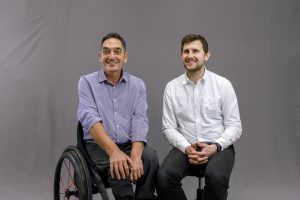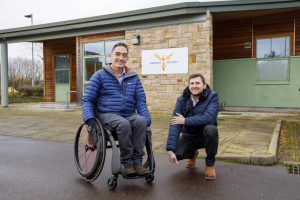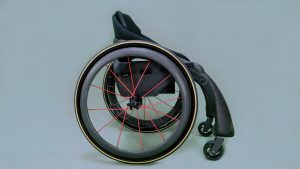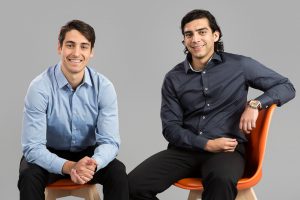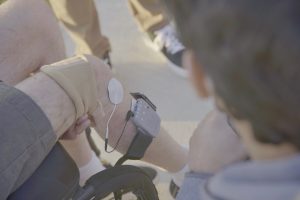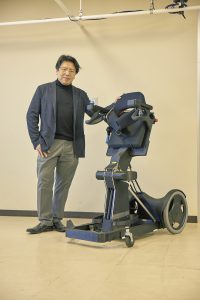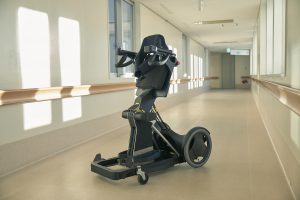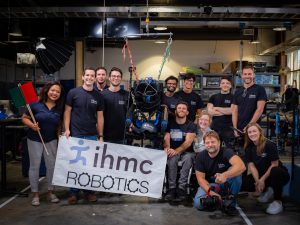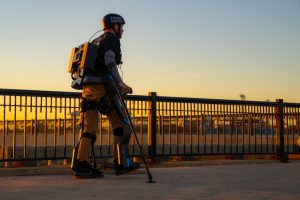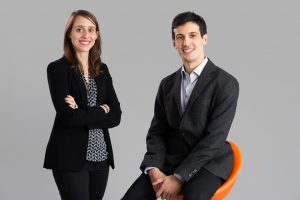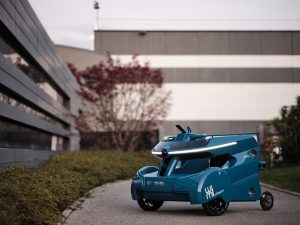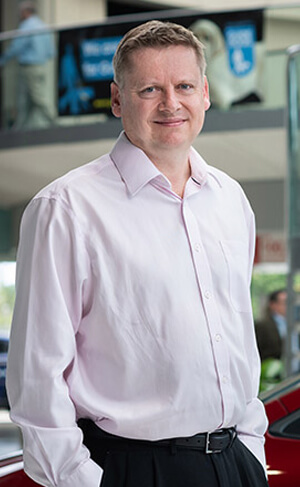UK Company Wins $1 Million in Toyota Mobility Unlimited Challenge with new Intelligent Wheelchair
- Toyota Mobility Foundation, in partnership with Nesta Challenges, announces winner of $4 million global Mobility Unlimited Challenge in virtual event
- Phoenix Instinct from the UK wins $1 million prize to help bring its Phoenix i wheelchair to market
- Winner’s announcement is the culmination of the three-year Mobility Unlimited Challenge which saw innovators from around the world propose technologies to improve the lives of people with lower-limb paralysis
- Images of the finalists and winner available here: The Mobility Unlimited Challenge – Finalist and Winner Photos
Phoenix Instinct from the UK is the winner of the Mobility Unlimited Challenge, receiving $1 million to bring its intelligent ultra-light carbon fibre wheelchair to market, with the potential to transform millions of lives in the disability community.
The Challenge, launched in 2017 by The Toyota Mobility Foundation in partnership with Nesta Challenges, attracted entries from more than 80 teams from 28 countries and offered a total award fund of $4 million. Engineers and designers from around the world submitted their ideas for groundbreaking devices to enhance the mobility and independence of people with lower-limb paralysis. The Challenge supported Toyota’s commitment to the UN Sustainable Development Goals, reducing inequalities for people with paralysis and giving them better access to economic, social and educational opportunities.
The University of Pittsburgh’s Human Engineering Research Laboratories (HERL) led the assessment of the entries and provided mentorship alongside a team of Toyota experts. The winner was chosen by a panel of expert judges (see Notes to Editors for details).
The winning entry, the Phoenix i, from Inverness-based Phoenix Instinct, uses intelligent systems to automatically adjust its centre of gravity, making the wheelchair’s ultra-light carbon fibre frame extremely stable and easy to manoeuvre. It uses front-wheel power-assistance to reduce painful vibrations and minimise strain on the user. The chair’s intelligent powered braking system automatically detects when the user is going downhill and adjusts to help control the descent.
Andrew Slorance, founder and CEO of Phoenix Instinct, said: “Winning the Toyota Mobility Unlimited Challenge is incredible for Phoenix Instinct and for wheelchair users. The wheelchair as we know it has been technologically unchanged for decades. The funding we received through the Challenge allowed us to prove smart technology makes for an easier to use and safer wheelchair, with the potential for a suite of new features. With the prize money we can now advance this work and bring the Phoenix i wheelchair to the consumer. It’s a very exciting time, with Toyota moving into the mobility sector, we’re going to see significant advances in mobility devices. We’re thrilled to be leading the smart wheelchair revolution.”
The four other Challenge finalists were:
- The Evowalk: Evolution Devices (United States) – a smart wearable simulator that fits below the knee and uses artificial intelligence to support muscles to aid rehabilitation in walking and prevent falls for people with foot drop.
- Qolo (Quality of Life with Locomotion): Team Qolo, University of Tsukuba (Japan) – a standing mobility device that integrates exoskeleton and wheelchair functions. It supports the function of standing and sitting with a passive assist mechanism for people with lower limb paralysis.
- Quix: IHMC & MYOLYN (United States) – a highly mobile, powered exoskeleton offering fast, stable and agile upright mobility.
- Wheem-i: Italdesign (Italy) – a wheeled semi-autonomous electric device that provides ride sharing for wheelchair users. It is primarily designed for micro mobility and is usable on a variety of surfaces.
Sir Philip Craven, member of the Board of Directors at Toyota Motor Corporation and former President of the International Paralympic Committee said: “Mobility means freedom…(and) liberation from being limited in life. As we believe at Toyota, when we are free to move, we are able to fully participate in society, and I’m excited for each of these devices supported by the Mobility Unlimited Challenge, particularly the winning device, because of how it will allow so many people to …do what they want to do.”
Ryan Klem, Director of Programs for Toyota Mobility Foundation commented: “We are thrilled to announce Phoenix Instinct as the winner of the Mobility Unlimited Challenge. The judges were impressed by the way the device incorporated intelligent systems in its design in a way that represents a true advance for the wheelchair and could see it having a clear route to market. TMF is dedicated to continuing to support these passionate teams, and we hope, through this process, that all the teams are able to find resources to do the same, as they have all shown incredible creativity and innovation. We believe this Challenge will result in huge improvements in assistive technology and are extremely proud of what all of the teams have achieved.”
Liz Vossen of Nesta Challenges said: “For too long, the disability community has faced restricted mobility and accessibility. The coronavirus pandemic has forced a change in attitudes towards remote working, showing that it is possible to be present and productive at home. However, the pandemic also highlighted the need for non-disabled people to have a better understanding of the importance of mobility for all. We hope that these devices will improve the mobility of people across the world and contribute to a more inclusive future.”
The Mobility Unlimited Challenge judging criteria were based on innovation, insight and impact, functionality and usability, quality and safety, and market potential and affordability. One of the key considerations for choosing the winning entry was devices that would integrate seamlessly into people’s lives and environments, while being comfortable and easy to use, enabling greater independence and increased participation in daily life.
Around the world, millions of people are living with lower-limb paralysis (the most common causes being strokes, spinal cord injury and multiple sclerosis). While there are no statistics on paralysis worldwide, the World Health Organization estimates there are 250,000-500,000 new cases of spinal cord injury globally every year.
ENDS
Notes to Editors
Mobility Unlimited Challenge Judging Panel:
- Professor Linamara Battistella, Physical and Rehabilitation Medicine doctor at the University of Sao Paulo (Brazil)
- Winfried Beigel, Director of Research and Development for Otto Bock Mobility Solutions (Germany)
- Dr Mary Ellen Buning, President-elect for the Rehabilitation Engineering and Assistive Technology Society of North America (United States)
- Dr Kay Kim, President of NT Robot Co (South Korea)
- Eric Krotkov, Chief Science Officer at Toyota Research Institute (United States)
- Eric LeGrand, disability rights advocate (United States)
- Sophie Morgan, television presenter and disability advocate (United Kingdom)
- Ruth Peachment, Occupational Therapy Clinical Specialist at the National Spinal Injuries Centre (United Kingdom)
- Matthew Reeve, Director of the Christopher & Dana Reeve Foundation (United States)
- Dr Yoshiyuki Sankai, President of robotics company Cyberdyne (Japan)
- Dr Lloyd Walker, professional rehabilitation engineer at Tech4Life (Australia)
About Toyota Mobility Foundation
- The Toyota Mobility Foundation was established in 2014 to support the development of a more mobile society.
- The Foundation aims to support strong mobility systems while eliminating disparities in mobility.
- It utilises Toyota’s expertise in technology, safety, and the environment, working in partnership with universities, government, non-profit organisations, research institutions and other organisations to address mobility issues around the world.
- Programmes include resolving transportation problems, expanding the utilisation of personal mobility, and developing solutions for next generation mobility.
- Learn more at toyotamobilityfoundation.org.

